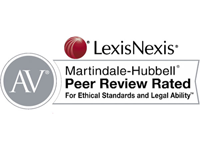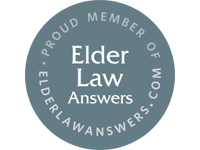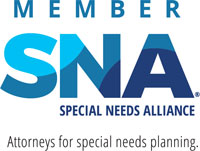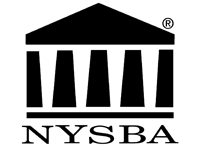Date: April 26, 2013
We received such positive feedback from our recent newsletter (“Serving as Trustee: Fair and Honest is Not Enough,” Special Needs Estate Planner, November 2012) that we thought a companion piece which continued the theme would be in order. Before we do, however…
Wilcenski & Pleat PLLC Sponsors Second Annual Autism Fair and Carnival
This past weekend, hundreds of families and a multitude of exhibitors descended upon Skidmore College in Saratoga Springs, New York, for the Second Annual Autism Fair and Carnival. The event, presented by Saratoga Bridges, the Psychology Department of Skidmore College, and the Parent Network of the Capital Region, was presented in recognition of Autism Awareness Month, and offered visitors information on recreational programs, technological innovations, college counseling and other services and supports designed to assist individuals with autism and their families.
Our firm was thrilled to be invited to serve as a platinum sponsor for the event. As most of our readers know, effective advocacy begins with good information, and events like this are perfectly suited to educate both families and professionals in a comfortable, collaborative and enjoyable setting. We congratulate the event organizers for bringing this fantastic event to our neck of the woods, and we are looking forward to participating in 2014.
Serving as Trustee: The Devil is in the Details
Recently we wrote about our changing convictions over naming individuals to serve as trustees of special (supplemental) needs trusts. Readers may recall that while we acknowledged that some individuals have the time, inclination and aptitude to provide valuable and credible fiduciary services, in many (and perhaps most) instances, individuals fail to appreciate the time and effort that is required to do the job correctly, and they do not understand the risk of liability in the increasingly contentious world of Medicaid eligibility and reimbursement.
Indeed, our experience has been that many individuals – typically family members with nothing but the best intentions when they accept the job – either resign from the position, or they begin to take “commissions” (compensation) in an amount which is about same amount that a professional trustee (like a bank or trust company) would charge. For those individuals who stay on as a paid trustee, they often have to rely much more heavily on paid professional support (from attorneys, accountants and others). As a result, the arrangement is usually more expensive, and the family member trustee has less time to spend being a friend and companion to the beneficiary with the disability, the one role that is nearly impossible to replace. We thus believe that clients should strongly consider using banks and trust companies to fill the role of trustee, and allow family members to be just that.
Nonetheless, many of our readers will find themselves serving as trustees, whether by choice or necessity. With this newsletter we wanted to provide a list of suggestions that may help make their jobs easier, and to highlight a few common mistakes that we hope they will avoid once they take the helm.
With this in mind:
1. Keep Receipts
You may think that this goes without saying, but we are continually surprised at how often our trustee clients are unable to produce any documentation which corroborates a purchase made with trust funds. Often the issue arises in the context of reimbursement.
Here’s the situation. The sister of a trust beneficiary is shopping at a local mall and sees a great deal on a nice winter coat that she knows the beneficiary needs. She buys the coat for $53.19 using her own funds, and delivers the coat to her brother with the disability. The sister then sends an email to the trustee (perhaps another sibling) and asks the trustee to send her a check for $53.19 to reimburse her for the coat. The trustee writes a check from the trust checking account for $53.19 payable to the sister, and writes in the check ledger “reimbursement – winter coat.”
Is the expenditure permissible? Absolutely. The beneficiary needs the coat, the price is reasonable, and trust funds can be used to purchase clothing for the beneficiary. So far so good.
The problem is that without a receipt, there is no way for the trustee to prove that a coat was actually purchased with the money. The trustee may say, “But it’s my sister – I know she wouldn’t lie to me.” That may very well be the case, but in the world of trust administration, the trustee cannot rely on getting the benefit of the doubt. If the trustee cannot corroborate a purchase with a receipt or other documentation from the merchant, the trustee runs the risk of having to replenish the trust out of the trustee’s own funds.
The rule is simple: no receipts, no reimbursement.
2. Don’t Use an ATM Card
Some people prefer to pay for everything with cash. They may not like credit cards because of the risk of paying interest on a purchase, or they may dislike the idea that there is a running record (maintained by the credit card company) of their financial activity. Or they may just like the feel of a roll of bills in the pocket. If they need something and there isn’t enough money in the bank, then they simply will wait to make the purchase until they save enough money to do so. We respect this school of thought.
Unfortunately, this practice can be a very cumbersome practice for a trustee. When we prepare accountings for our trustee clients, we often see ATM withdrawals followed by a description of the item purchased with the withdrawn funds. For example, a trustee may provide us with a copy of his check ledger which shows a $60 ATM withdrawal, followed by the explanation, “winter coat for (beneficiary).”
Is the expenditure permissible? Absolutely (see explanation in item 1 above). But exactly $60.00 for a winter coat? How often do you pay an even dollar amount for an item (once tax is included)? Almost never.
If a trustee insists on using cash to make purchases, then she should follow the rule outlined in item 1 above (keep receipts), and make sure that any change that is left over from a purchase is returned to the trust. So in our example, the check ledger would show a $60.00 withdrawal for purchase of the coat, and then a $6.81 deposit reflecting the unused balance. The trustee would have the receipt for $53.19 to support the expenditure.
Doable? Yes. But on a recurring and regular basis, it can become overly cumbersome and lead to mistakes. And what if the balance is not returned to the trust account? The trustee remains personally liable for the difference.
Our advice? If a trustee wants to manage his personal financial affairs using only cash, that’s fine. But when you are serving as trustee, write checks or use a credit card (and pay the credit card bill promptly and in full).
3. You CANNOT Use Trust Money to Make Gifts
Recently we prepared a final accounting for the trustee and of a supplemental needs trust. A “final” accounting is required when the beneficiary dies and the trust terminates. In this case, the beneficiary was a relatively young woman who suffered a catastrophic injury and required nursing home care. She was unable to communicate, unable to travel outside of the facility, and thus there were few opportunities to utilize trust funds for her direct benefit.
As we reviewed the accounting prepared by the trustee, many distributions from the trust account were for birthday gifts, graduation gifts, and holiday gifts for this individual’s children and other family members. When we inquired about these distributions, we were told by the trustee that this is how the beneficiary “would have wanted her money to be spent” in light of the fact that it could not be used for her direct benefit. At least her children and other family members would derive some benefit.
We understand the trustee’s thinking, as well as his frustration over the fact that this money was otherwise going unused. Why shouldn’t this money be used to help this young woman’s family, especially since this would certainly have been her intention if she was able to make her wishes known?
The simple reason is because the trust document makes clear that the funds are only to be used to purchase goods and services for the person with a disability. Not for her spouse, not for her children, not for her church or synagogue, and not for her favorite charity. And if the terms of the trust are not followed, then the preferential treatment that is given to these trusts by the Medicaid and Supplemental Security Income programs may be lost, meaning that the individual will lose Medicaid coverage, will lose regular monthly income from the SSI program, and would be forced to begin paying privately (using trust funds) for goods and services that would otherwise be provided by these government benefit programs.
The bottom line? These government benefit programs are voluntary. If an individual with a disability has money, and she (or her guardian or advocate) wants the freedom to spend the money in any manner she wants (or give it away whenever she wants), then she is free to do so. But once she decides to take advantage of the benefits provided by the Medicaid and/or Supplemental Security Income programs, she must comply with their rules. And those rules say that funds in a supplemental needs trust can only be used to purchase goods and services for the beneficiary; they cannot be used to make gifts. Period.
4. Don’t Throw Anything Out Until Your Job is Done
When an individual accepts the role of trustee, she should understand that that every trust transaction will someday be subject to review and scrutiny. Indeed, a fundamental responsibility of every trustee is the responsibility to “account, “, ie., to provide detail, to the penny, on what the trustee took in, what the trustee earned (in the form of interest and dividends), what was spent, and what is left. This obligation applies to every trustee, be it a special needs trust, a life insurance trust, or one of the many other types of trusts that are prepared in an estate planning practice.
Unfortunately, this is one of those areas where it is easy for trustees to get lazy, because in many instances the trustee does not have to “pay the piper” until the job is done. In other words, unless the trust document or a court order requires it, trustees are not typically obligated to prepare accountings of trust activity on an annual basis. An accounting is not required until the trustee wants out of the job (ie., the trustee wants to resign), or until the trust terminates (usually at the beneficiary’s death). At that point, the trustee must prepare a comprehensive accounting beginning with the date the trustee was appointed and continuing through the date of termination.
A good trustee will retain all financial records relating to the trust until such time as her final accounting has been prepared, reviewed, and she has been “released” from any further responsibility and liability. In some cases these comprehensive accountings can cover a span of years that stretches into decades. Without good financial records, it can be nearly impossible to produce a detailed historical summary of trust financial activity.
Unfortunately, many financial institutions do not maintain financial records for more than a few years. Understanding this, it is the trustee’s responsibility to retain hard copies of all bank and other financial statements, the check ledger and other documentation of trust activity until such time as her final accounting is prepared and approved.
In our practice, we counsel all of our trustees – supplemental needs trustees and others – to periodically have their accounts “settled” on a voluntary basis. These “interim” accountings will wipe the slate clean for the period of time covered, and once the trustee’s accounts have been settled, the trustee is able to get rid of the underlying financial records. Just remember, there is no statute of limitations in the world of trust accountings. Until such time as the trustee’s job is done, she is on the hook. Don’t throw anything out.
5. Don’t Take it Personally
We alluded to this in our last newsletter on the topic, and it bears repeating. When you accept the role of trustee, you accept all of the important responsibilities that accompany the position. You may be a favorite sibling, a dedicated advocate, or a loyal family friend. In the world of trusteeship, none of those relationships matter. What matters is your ability to follow the rules (as outlined in the trust document and as provided for in the government benefit programs which support your beneficiary).
Thus, if you cannot provide a receipt for the purchase of the winter coat, you should expect that the person reviewing your accounting – whether it be a judge, an attorney for your beneficiary, or a representative of the Medicaid program – will not give you the benefit of the doubt, and you may have to dig into your own pocket to replenish the trust account.
As they say in the movies, “It’s not personal. It’s business.” Treat it as such.
Firm Notes and News
Ed Wilcenski recently joined the Board of Directors of the Shenendehowa Adult Community Center in Clifton Park, New York. The “ACC” provides recreational and social opportunities for senior adults in Southern Saratoga County, and regularly rents space to community groups and other professionals looking for a clean and well located space for various community oriented activities
On May 17, 2013, Tara Anne Pleat will be speaking about the legal duties and responsibilities of Guardians at a statewide conference for the New York State Bar Association. In addition, she will be speaking about probate and the administration of Trusts and Estates at the Empire State Alliance of Paralegal Associations 2013 Paralegal and Education Conference being held in Saratoga Springs on May 4, 2013.
Last month Tara was elected Vice-President of the Board of Directors of the Domestic Violence and Rape Crisis Services of Saratoga County. Known widely as the DVRC, the agency provides services to victims of domestic violence and assault as well as provides community outreach and education regarding relationship abuse in Saratoga County and beyond.
This newsletter is not intended as a substitute for legal counsel. While every precaution has been taken to make this newsletter accurate, we assume no responsibility for errors or omissions, or for damages resulting from the use of the information in this newsletter. If you would like to be removed from our distribution list, please email us or call us at (518) 881-1621















